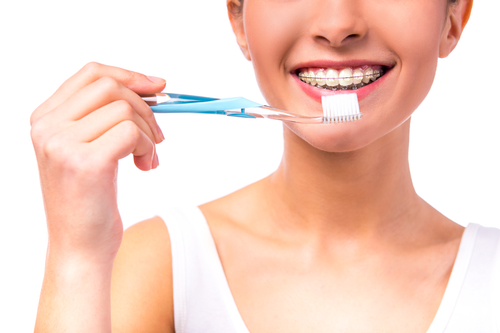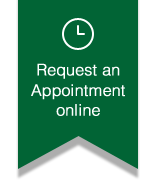
This may come as a surprise, but brushing your teeth immediately after a meal can be one of the worst things you can do for maintaining a healthy smile. When it comes to eating certain foods, your toothbrush quickly becomes a weapon of destruction rather than a helpful tool.
It may be tempting to follow up meal times with brushing to remove any left-behind food in your braces, but here’s why you shouldn’t be brushing after every meal.
Why Brushing Should Wait
After eating highly acidic foods, your teeth are more susceptible. Brushing immediately after you eat causes damage to your enamel because of the weakened state of your teeth. The abrasive bristles of your toothbrush wear away the protective surface of the teeth, causing more harm than good.
We recommend that patients wait at least 30-60 minutes before brushing their teeth. There are other simple preventative measures you can take immediately following a meal to help eliminate any left-behind food and damaging sugars.
Take These Preventative Steps Instead of Brushing
Proper preventative measures to take instead of brushing after you eat include:
Drinking and rinsing with water.
The best thing you can do to immediately clean your teeth after a meal is to rinse with or drink water. Not only will drinking water help to rinse any sugars and debris from your teeth, but it will also help to produce saliva. Saliva is your body’s natural defense against tooth decay. It restores a healthy PH level in your mouth and coats the teeth with the minerals they need.
Chewing sugarless gum.
Out of all the sugarless gum available, the best type of gum you can chew are those that list Xylitol as the first ingredient. Chewing sugarless gum also helps to boost your body’s saliva production, and cleans your teeth with every chew. Chewing gum with braces isn’t encouraged, but if you are going to take the risk, make sure it’s Xylitol gum.
Consuming dairy or non-acidic foods after eating.
Eating dairy products also helps to create saliva which fights off cavities. As a bonus, dairy products typically contain high amounts of calcium which helps to strengthen your teeth.
Protecting Your Enamel
Your enamel is the thin, but very durable outer coating of your teeth. It protects the inner parts of the tooth including the dentin and the pulp. Your enamel never grows back after it has been chipped or worn away, so it should always be taken care of.
Erosion – Exposure to acidic foods or drinks is one of the main reasons for enamel wearing away. This process is known as tooth erosion, and it leaves the dentin exposed, which leads to extreme tooth sensitivity.
Sensitivity – The dentin inside your teeth is very porous, and each hole in the material has small nerves inside. Without tooth enamel, your teeth would become extremely sensitive. Once your teeth become sensitive, it can become challenging to consume anything hot or cold, or even to brush your teeth. Sensitivity can be quite painful and difficult to treat.
The Correct Way To Care For Your Braces
Caring for your teeth can be stressful enough without having to navigate around braces while doing so. Braces have countless tiny spaces to trap food, and that trapped food can lead to dental issues. That’s why it’s imperative to brush your teeth, and there are times where you should brush straight away. If you’ve eaten foods that are sticky, these foods can easily get stuck in your braces, and they’re also high in sugar.
So when is the best time to brush with braces? Thomas Orthodontics recommends brushing at least twice a day: after breakfast and just before bedtime. Don’t forget to floss daily to help remove food and plaque bacteria from in between your teeth where your toothbrush can’t reach.
Ask Dr. Thomas how your dental hygiene routine is measuring up at your next checkup!





